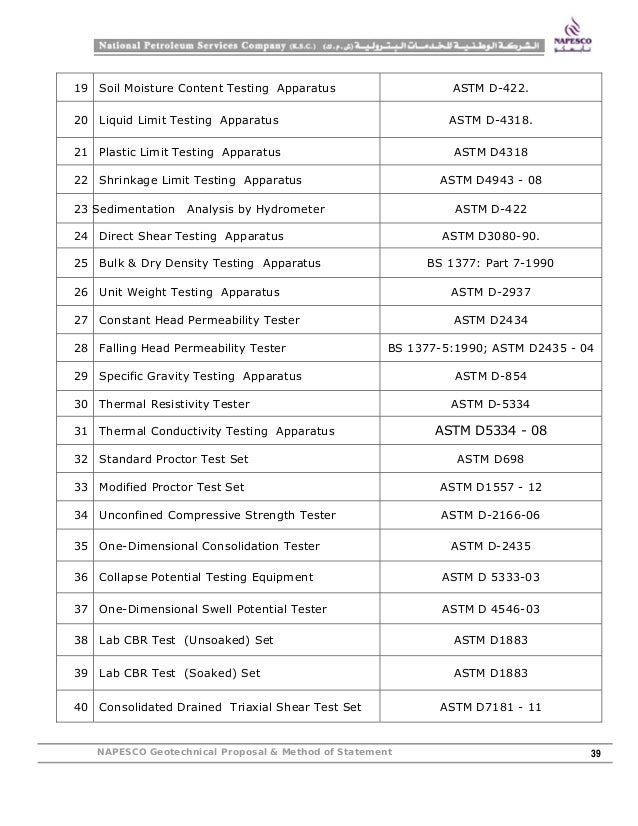

No part of this publication may be reproduced, stored in a retrieval. With the current requirements of BS 1377: 1990, including its subsequent amendments. For soils for civil engineering purposes, Parts 1,2,3 and 4. Mar 12, 2003 - In this Part of BS 1377 the test methods described in the 1975 edition have been. Out in accordance with clause 3 of BS 1377-3:1990.
Viktor docenko uchenik samuraya. BS 1377-5: 1990 BRITISH STANDARD Incorporating Amendment No.
What is this standard about? This is Part 3 of a standard on how to test soil samples and ground water for the presence of chemicals that might be harmful to steel or concrete. This part deals with pH and electrical resistivity and is used to assess aggressive ground conditions, corrosivity or materials that might give rise to ground expansion. Who is this standard for? • UKAS accredited laboratory managers, supervisors and technicians • Civil and ground engineering contractors • Consultants and clients • Associated testing laboratory ground investigation specifiers • Local authority engineers and planners • Infrastructure managers and planners • Risk management professionals • Information technology professionals Why should you use this standard? It provides a comprehensive and updated suite of test methods and best practice guidance for the UK industry. Missing my baby girl poem. It uses modern instrumental (analytical) techniques, as used by the large majority of commercial testing laboratories.
It includes new tests covering the parameters required for assessing the risks associated with aggressive ground conditions or the potential for adverse reactions or volume changes in construction material in the UK, primarily for natural soils and rocks in situ and in earthworks. It can be applied to the assessment of soil quality, aggregates and most man-made materials such as slags. Specifically, BS 1377-3: • Standardizes the methods used in current practice • Formalizes the use of modern chemical analytical methods • Provides a single source for the methodology for chemical testing for civil engineering purposes • Integrates analytical laboratories into chemical testing for civil engineering purposes, in particular methods of sample preparation • Broadens the test type for some tests into weaker rocks • Removes an electrical resistivity test that is unreliable What’s changed since the last update? This version: • Updates the methods used to analyse materials and reflects current practice used to determine chemicals commonly used in analytical chemical laboratories • Increases the number of chemical tests required by the industry and as given by BRE Special Digest 1 (BRE 2005) • Improves sampling and sample preparation and storing methods for sulfur species testing • Removes an unreliable two point electrical resistivity test.
Standard Number BS 1377-3:2018 Title Methods of test for soils for civil engineering purposes.